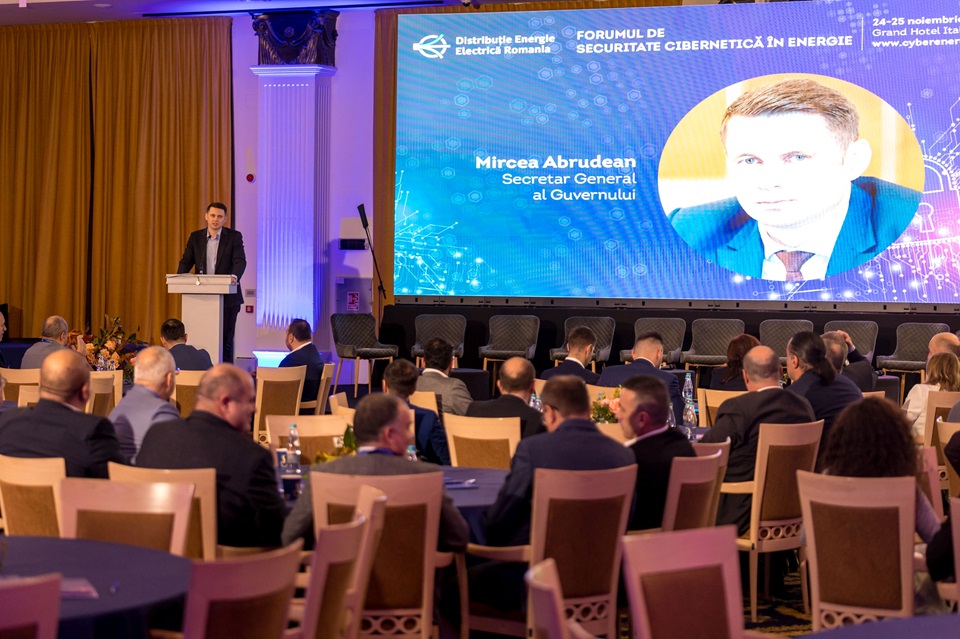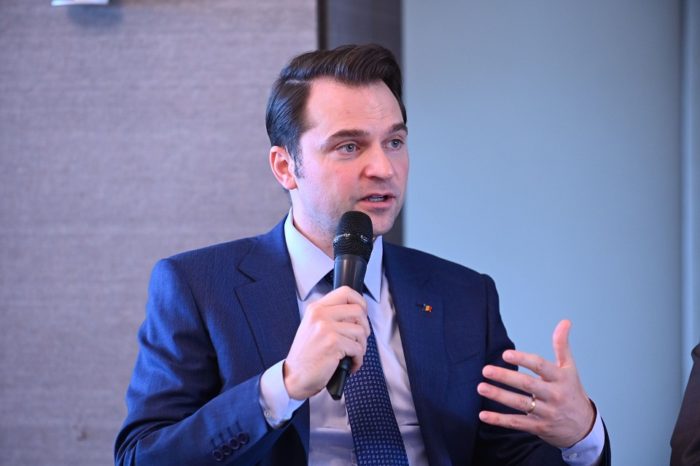Mircea Abrudean, SGG: “Romania needs better cooperation and open dialogue on the topic of cyber risks and threats”

“The energy sector is one of the most sophisticated and complex in the world and is experiencing a rapid transition from analog to digital technologies, from centralized to distributed and from fossil fuels to low carbon.
It is critically dependent on operational technologies and interconnected systems that monitor and control its automated industrial processes, making it a potential and prime target for large-scale cyber-attacks.
Most analysts estimate that over a third of all cyber-attacks globally are against energy infrastructures,” Mircea Abrudean, Secretary General of the Government (SGG), said at the Energy Cyber Security Forum.
“Also targeted are supplier and supply chains, which are highly vulnerable to a range of cyber threats, particularly ransomware and phishing attacks.
Some of these attacks are carried out by state actors and state-controlled groups, and others are launched by hacktivists or financially motivated criminal groups.
Most attacks are launched in an unpredictable and sensitive geopolitical context, but with an obvious energy and cyber dimension.
Russia’s war of aggression in Ukraine has recently created one of the most significant energy crises in Europe and brought new risks and a mix of kinetic and cyber-attacks combined as a hybrid threat.
So far, the energy dimension of the crisis generated by this war has been (largely) the result of physical disruptions, the flow of natural gas has been reduced, pipelines have been sabotaged, and some power lines have been temporarily or completely cut off.
European countries have responded to the situation by replenishing energy reserves and reducing demand, and the European Union (EU) has also taken steps through new legislation to strengthen infrastructure, defence and resilience, including cyber.
However, many experts warn that if the energy sector is subjected to major and sustained cyber-attacks this winter, the consequences could be massive and potentially impact tens of millions of consumers across the region.
Regardless of the actor behind these attacks, the possible implications are worrisome.
In this context, as mentioned in a report published a few days ago by the World Economic Forum, it is important that the regulatory authorities and actors in the energy sector in Europe share a common vision and understand that the cyber resilience of the sector is a priority.
This involves not only simple compliance with regulations in the field but also an assessment of cyber risks at the sector level, plus the adoption of proactive measures to ensure a higher level of protection.
It is an excellent opportunity to create a collaborative environment, focused on increasing the resilience and cyber security of the entire sector, based on the exchange of information, the development of joint initiatives, the definition of principles and the alignment around them of all relevant actors.
A measure that is needed today in Romania is better cooperation and a constant and open dialogue on the topic of cyber risks and threats, but also of good practices for their management, between cyber security specialists, energy engineers and technicians and leaders of organizations.
Cooperation is especially necessary when operational technologies or industrial control systems in the energy sector are directly affected by cyber-attacks, which statistically result in operational interruptions for approximately 60% of cases, or unauthorized access to data for 40% of situations .
Moreover, the energy industry in Romania must continue the development of cyber cooperation structures and formats such as sectorial CSIRT teams; the SOC (Security Operating Center) type services or the ISAC (Information Sharing and Analysis Center) format for the energy sector, which has already been successfully launched.”














